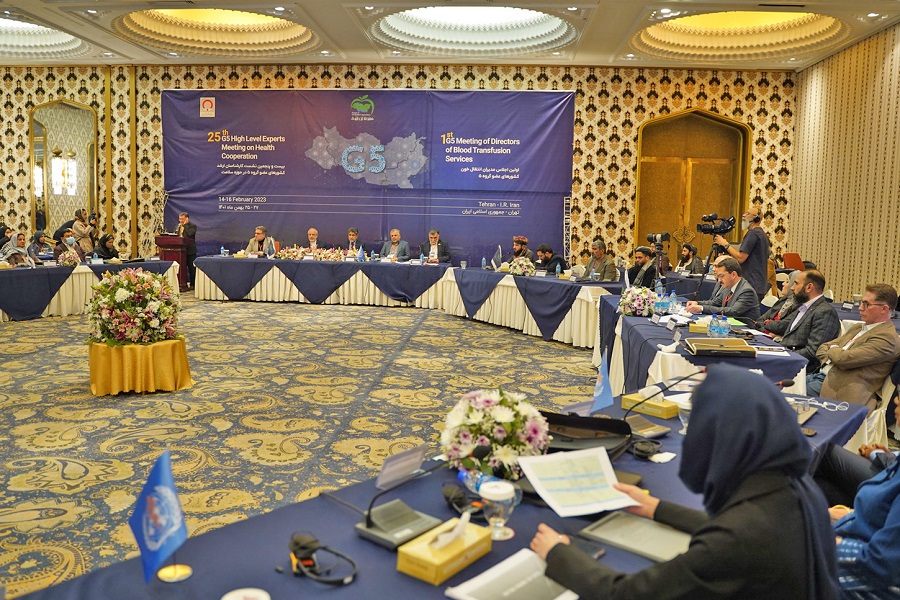
20 February 2023 – The G5 High-Level Expert Meeting on Health Cooperation welcomed the World Health Organization (WHO) Regional Director for the Eastern Mediterranean Dr Ahmed Al-Mandhari in their prestigious summit held on 14–16 February 2022 in Tehran aimed at joint work for joint health problems.
The first of its kind in a series of high-profile meetings of G5 member states on health, it was attended by directors of blood transfusion organizations in the Region representing Afghanistan, Iraq, Islamic Republic of Iran and Pakistan, and experts from WHO headquarters in Geneva and the Regional Office for the Eastern Mediterranean, as well as a delegation from WHO Country Office headed by Dr Syed Jaffar Hussain, WHO Representative and Head of Mission to the Islamic Republic of Iran.
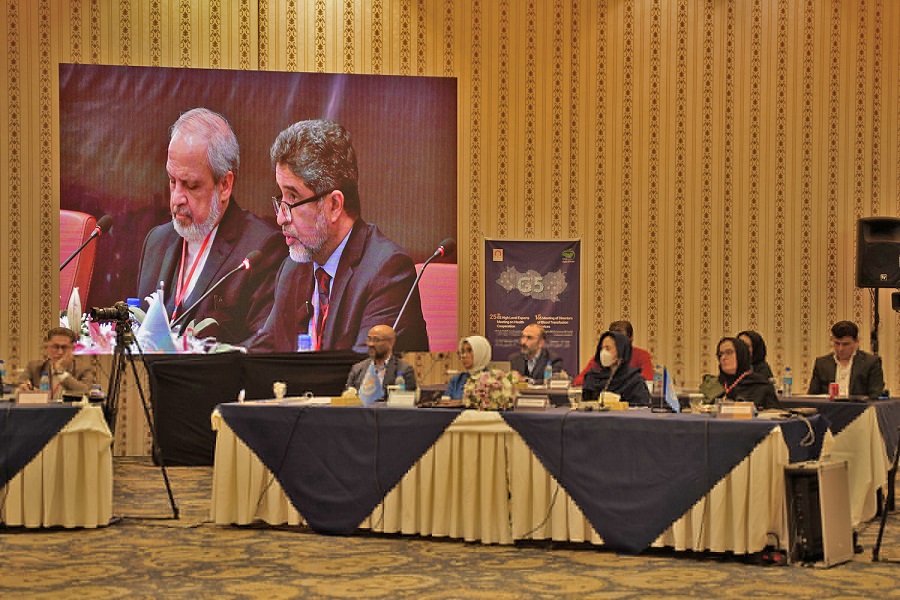
The three-day event was hosted by the Iran Blood Transfusion Organization (IBTO) and reviewed recent developments in blood transfusion services while exploring avenues of cooperation among members in the field of blood fractionation and transfusion.
Dr Al-Mandhari delivered a message during the opening session that was chaired by Minister of Health and Medical Education of the Islamic Republic of Iran, Dr Bahram Eynollahi, and consisted of 4 thematic sessions on voluntary blood donation, blood component preparation, blood screening systems, and modern technologies for improving the safety and quality of blood products.
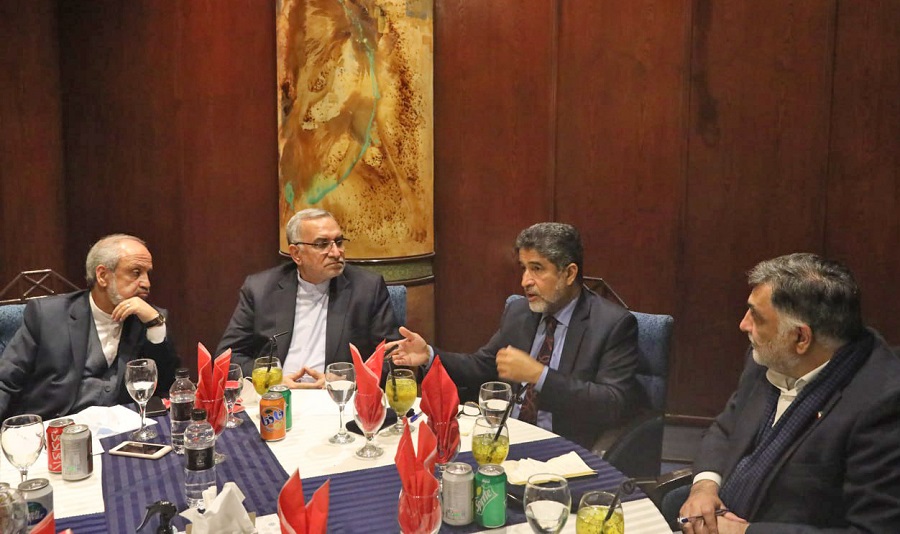
“In line with WHO’s vision of ‘Health for All by All’ in the Region and cognizant of the role of access to safe and quality-assured blood and blood products in achieving universal health coverage, implementation of the regional framework addresses governance issues including establishment of blood regulatory system, consolidation and regionalization of the blood supply system and setting up clinical governance system for blood transfusion,” said Dr Al-Mandhari in his speech, and stressed the need for more serious efforts to establish effective and sustainable blood donor management programmes based on voluntary, regular, and unpaid donations in countries where progress has been limited, including the G5 countries.
At a separate meeting during the visit, WHO’s Regional Director also exchanged views with Dr Eynollahi, where the Health Minister presented an overview of research and development activities by universities of medical sciences across the country and the overall state of the health system in Islamic Republic of Iran.
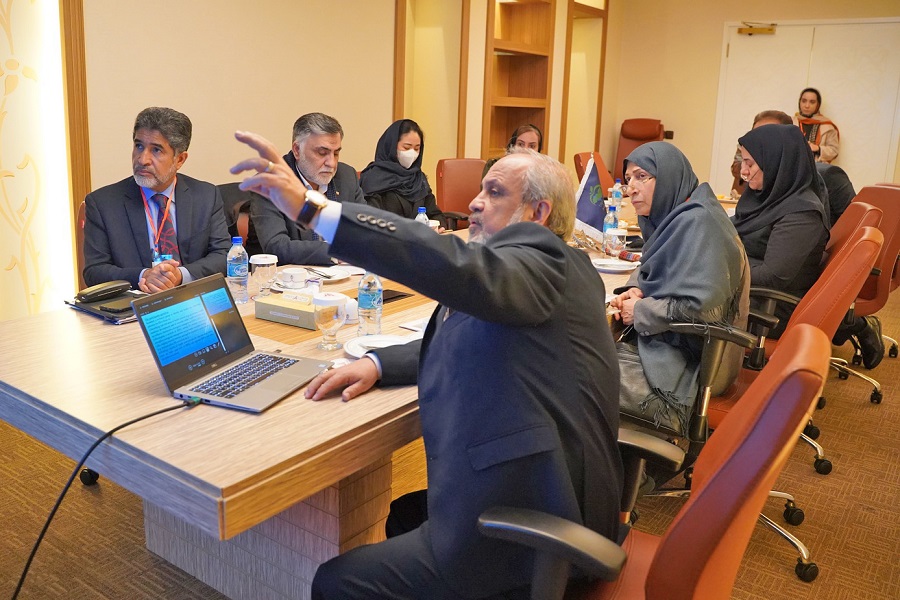
“Platforms such as the G5 forums could be instrumental in health promotion in the Region by providing the opportunity for experience sharing among countries in the Region and beyond, and to address and resolve the challenges set before such countries,” said Dr Eynollahi.
The meeting mainly focused on the adverse impact of sanctions on access to essential medical products and technology in this particular region, including those currently grappling Syria and Türkiye following the recent earthquake. Dr Eynollahi highlighted and appreciated WHO’s significant role in the Iran COVID-19 Emergency Response Project (ICERP) in 2020–2021, and its potential to play a role in voicing the concerns of the Region to international organizations.
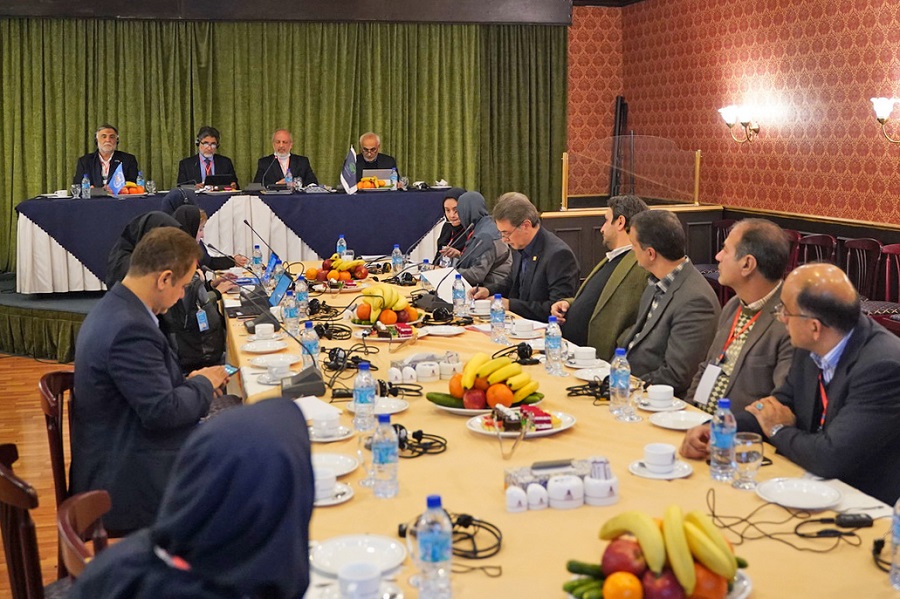
Dr Al-Mandhari’s visit included a trip to IBTO’s exhibition where he was presented with the most recent technologies utilized in blood transfusion in the country. He then met with Dr Reza Najafi, Foreign Ministry Deputy for Legal and International Affairs, and Dr Mohammad Hossein Nicknam, Director General of the Health Ministry’s International Affairs Department, to discuss bilateral cooperation and the 2 ministries’ support for the WHO Country Office operations in Islamic Republic of Iran. He was also briefed on the country’s health and insurance systems, including those concerning the family physician programme and Afghan refugees in a meeting with deputy health ministers, head of Salaamat (Health) Insurance Organization, and director of the Food and Drug Administration.
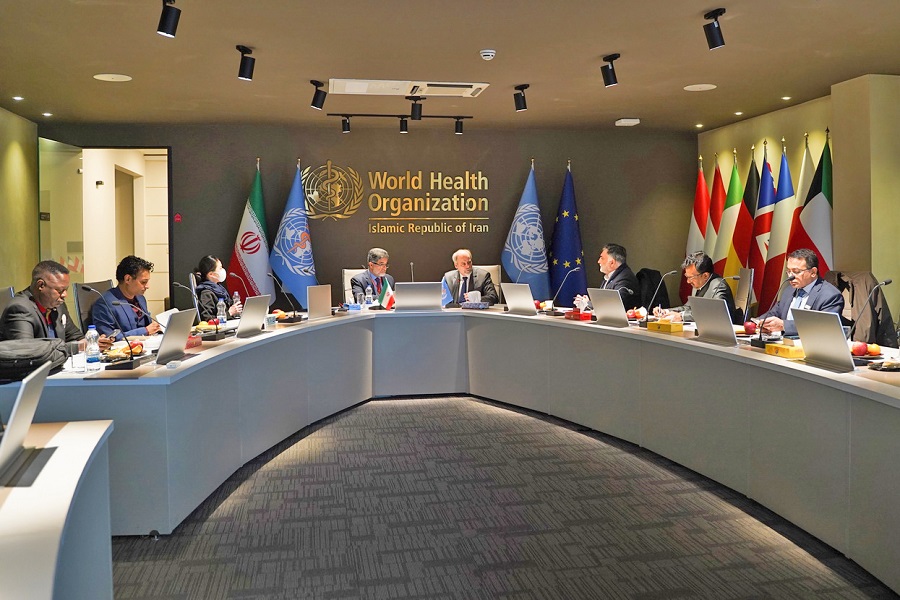
Representatives of UN agencies in Iran, including the UN Resident Coordinator, Mr Stefan Priesner, also discussed challenges and opportunities for operation and constructive multilateral partnership in the country.
In September 2022, the Ministry of Health and Medical Education of the Islamic Republic of Iran, hosted the first G5 High-Level Expert Meeting on Health Cooperation in Tehran attended by G5 member state representatives to expand collaboration in addressing common challenges and interests in the field of health and well-being. The summit had discussed 3 thematic sessions, including health system under a primary health care approach, communicable diseases and cross-border collaboration on mass gatherings.
The next meeting of the G5 High-Level Expert Meeting on Health Cooperation is themed "Healthcare Leadership and Governance Training Program," organized by the Health Managers Development Institute in Kish Island.





